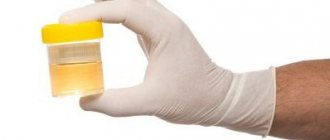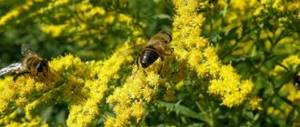TOP 6 effective recipes for the treatment of nephritis
1. To prepare the next decoction you will need:
- parsley roots,
- fennel seeds,
- medicinal asparagus roots
- and cultivated celery.
All ingredients are mixed in equal proportions, pre-grinding if necessary. Pour 10 g of herbal mixture into 300 ml of cool water. The collection must steep for 6 hours, and then it is put on fire and boiled for 10 minutes. The strained broth should be drunk several sips throughout the day.
2. Mix in equal quantities:
- weeping birch leaves,
- lingonberry leaves,
- herbal kidney tea,
- naked licorice root,
- St. John's wort,
- chamomile,
- calendula.
Mix everything thoroughly and pour 10 g of the collection into 250 ml of boiling water. After 1 hour, the broth can be filtered. Drink 85 ml 3 times. per day.
3. Mix:
- 30 g coltsfoot leaves,
- 25 g St. John's wort,
- 25 g of yarrow flowers and
- 20 g nettle.
Pour 10 g of the medicinal mixture into 250 ml of very hot water and leave for 2-3 hours. The strained broth is drunk in 2 times, 125 ml each. The course of treatment should be continued for approximately 25 days.
Treatment of jade with folk remedies at home
Nephritis is a kidney disease in which the kidneys become inflamed. There are several forms of the disease, but treatment of jade with folk remedies can be chosen for absolutely each. You just need to consult your doctor in advance to rule out allergies and negative effects on combined use with other medications, both natural and industrial medications.
Remedy for acute and chronic pyelonephritis
Mix together 30 g of tall ash roots with 10 g of lingonberry leaves, 5 g of ordinary hop cones and 10 g of oregano. Pour the resulting mixture into 1000 ml of water, put it on the fire and boil for about 30 minutes. We drink the strained broth 125 ml 3 times. per day.
Attention! Before using folk recipes to treat diseases of various kinds, consult your doctor or herbalists to prevent negative consequences!
Tags: Jade
- Related Posts
- Traditional treatment for kidney stones (renal stone disease)
- Treatment of Pyelonephritis with folk remedies
- Kidney failure - symptoms and folk remedies
We treat kidneys with folk remediesYuri Konstantinov, 2014
Essence of the disease
Nephritis is a group of inflammatory kidney diseases that affect the glomerular apparatus. Nephritis can be diffuse (affecting the glomeruli completely) and focal (with individual inflammatory foci). Diffuse nephritis is more dangerous to human health. It can occur in acute and chronic forms.
In case of nephritis, the renal collecting system, their tubules, glomeruli and vessels are affected. Kidney inflammation can occur independently or as a complication of various diseases. Most often, women are susceptible to kidney inflammation.
Jade is divided into groups:
- pyelonephritis (kidney inflammation of bacterial origin);
- glomerulonephritis (inflammation of the glomeruli);
— interstitial nephritis (damage to interstitial tissue and renal tubules);
— shunt nephritis (complication of immune complexes in the renal glomeruli).
By origin, jade can be primary or secondary.
Primary nephritis occurs as a result of primary kidney diseases, which include acute or chronic glomerulonephritis. It accounts for about 80% of all cases of nephritis.
Secondary nephritis develops as a secondary disease in a variety of pathological processes. The causes of nephritis can be:
- renal amyloidosis, diabetes mellitus;
— infectious diseases (tuberculosis, malaria, influenza, syphilis);
— autoimmune diseases (rheumatoid arthritis, lupus erythematosus);
- abnormal allergic reactions;
- vasculitis, myeloma, thrombosis;
- oncological diseases;
— poisoning with poisons or heavy metals (lead, mercury, gold);
- gynecological diseases in women;
— pregnancy (nephropathy of pregnant women);
- alcoholism.
The symptoms of nephritis are as follows. The clinical symptoms of nephritis do not depend on its causes and always manifest themselves in the same way: general weakness of the patient, loss of appetite, dry mouth and constant thirst, lower back pain and headache. The amount of urine decreases, sometimes nausea and vomiting, bloating and diarrhea, swelling of the limbs and face are observed. Tests show proteinuria (detection of protein in the urine), hyperlipidemia, hypoproteinemia.
Prolonged kidney inflammation and diuretic use usually cause paresthesia (a feeling of numbness and tingling of the skin), severe weakness, muscle pain and cramps. These symptoms appear due to the loss of beneficial substances by the body, in particular potassium and chlorides. If, as a result of nephritis, hydrothorax (fluid accumulation in the pleural cavity) or hydropericardium (fluid accumulation inside the pericardium) occurs, the patient experiences shortness of breath even in a calm state.
Treatment of jade with folk remedies
With the help of simple folk recipes, you can get rid of inflammatory processes associated with nephritis, remove swelling, and restore proper kidney function. Medicinal herbs, as well as berries and fruits, which have a diuretic, anti-inflammatory and restorative effect, can help with this. In severe forms of the disease, as well as in cases of illness in childhood, treatment with traditional methods should be carried out under the supervision of a doctor.
Infusion of feijoa leaves and flowers
In order to cure jade, it is recommended to first prepare feijoa leaves and flowers. You can use both fresh and dried raw materials. It is crushed and 1 tablespoon is brewed in 250 ml of boiling water. This mixture should infuse for at least 40 minutes. Before use, filter the solution; if necessary, you can sweeten it with honey. Drink the prepared drink twice a day.
White mulberry for kidney disease
To make a healing solution, you need to pour 500 g of fresh berries with 1 liter of vodka, add 300 g of sugar and add a liter of boiled water. All ingredients are thoroughly mixed and left in a dark place for 3 weeks. After this period, the finished tincture is filtered. Used for medicinal purposes for kidney diseases, 1 teaspoon 3 times a day.
Strawberry decoction
You need to pour 20 g of strawberries with 250 ml of boiling water and put on low heat. The solution should boil for about 10 minutes, then it is removed from the stove and left warm for about 2 more hours. The finished medicinal product is filtered, boiling water is added to make 250 ml. Drink 1 tablespoon three times a day.
Water infusion of gooseberries
To restore proper kidney function, you need to brew 55 g of ground gooseberries with 500 ml of water. The liquid is poured into a thermos and set aside for 6 hours. Take this remedy up to 5 times a day, 100 ml. To improve the taste, you can add liquid honey.
Lilac decoction for kidney diseases
You need to add 2 tablespoons of dried and crushed lilac leaves to 250 ml of water. This solution must be boiled for 5 minutes, then left for about 2.5 hours and filtered. Use the finished product 1 tablespoon twice a day.
Infusion of cherry plum flowers
To treat jade, use 20 g of cherry plum berries and pour 250 ml of boiling water over them. This remedy should infuse for about 2 hours, after which it is filtered and drunk twice a day.
Black mulberry for renal edema
Black mulberry infusion will help get rid of swelling due to kidney disease. To do this, pour 2 tablespoons of berries with 1 glass of boiling water and set aside for 4 hours. The strained drink is drunk 50 ml 4 times a day.
Infusion on bean leaves
To prepare a medicinal infusion for kidney disease, you need to grind the dried bean leaves. After this, 1 tablespoon of this raw material is poured with 300 ml of boiling water and placed in a warm place for an hour.
Cherry decoction for nephritis
If problems with the kidneys arise, prepare a healing cherry decoction. To do this, 10 g of cherry stalks are poured into 250 ml of boiling water. This product is simmered over low heat for about half an hour, then filtered and consumed twice during the day.
Linden infusion for kidney problems
You need 1 tablespoon of flowers collected from linden, pour 200 ml of water and put in a warm place for about 20 minutes. To treat nephritis, drink this solution 200 ml 3 times a day.
Pomegranate bark decoction
To make a decoction, 2 teaspoons of finely chopped pomegranate bark are brewed with 1 glass of boiling water and left in a steam bath for about half an hour. After this period has expired, the liquid is filtered and cooled. Drink 50 ml of the prepared solution twice a day.
Thorn flower infusion
You need to chop 40 g of sloe flowers and pour 200 ml of boiling water. The product must be infused for at least 12 hours, only after that it will be ready for use. Take 75 ml 4 times a day for nephritis and other kidney diseases.
Physalis wine tincture
Physalis tincture helps cure nephritis. To make it, 50 g of berries are mixed with 500 ml of dry red wine and set aside in a dark place for 30 days. Take 50 ml of the drug for medicinal purposes once a day before meals. The course of treatment is 7 days, after which you need to take a break.
Symptoms
Acute nephritis manifests itself in mild general malaise and pain in the lumbar region, spreading to the ureter, the urine is scanty and dark. Other symptoms include swelling of the face, body, swollen feet, ankles, and increased blood pressure. Chronic nephritis is characterized by periods of exacerbation and quiescence of the disease. Manifestations of exacerbation are similar to acute nephritis. As a result of repetition of such exacerbations, the renal glomeruli gradually die, the kidney decreases in size, which leads to renal failure and the accumulation of waste and toxic substances in the body. Uremia may develop - self-poisoning of the body.
Contraindications
Some medicinal herbs, berries and fruits can negatively affect other organs, so it is important to first study the information about a specific plant. Such infusions and decoctions may be contraindicated in case of metabolic disorders, hypertension, problems with the stomach, intestines, acute gastritis, peptic ulcers, rheumatism and other diseases. Individual allergic reactions to individual components of folk remedies are possible. Alcohol tinctures are prohibited in children; they can only be used to treat nephritis in adults.
Rating 5.00 (2 Votes)











